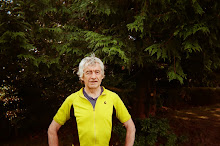1.
Is there Freewill? We call some people and acts responsible and others irresponsible. We say people are responsible for certain tasks because of their job or position e.g. being a parent. Again, we blame people for certain acts or omissions, hold them accountable, culpable. But, it might be claimed, a person’s choices, acts, temperament, personality are the natural outcome of his genes, parental, peer, and social influences, and possibly trauma and pathogens – illness. The human mind in its choices and will cannot transcend causality concerning natural phenomena.
Individuals make choices and perform acts which seem free in that they are voluntary (not the result of external or internal compulsion, or accident) and made with awareness. But perhaps choices (and acts) which seem free because voluntary and done with awareness are at a deeper physiological, psychological (or psychoanalytic) brain/mind level not free because they are fully accounted for by scientific natural laws concerning brain or psychic processes and prior brain or psychic states. That is, the human will is not free because it is entirely part of nature and entirely governed by natural laws. There is no mysterious entity – the mind or soul – standing outside natural causal processes which directs or informs the will (choices).
The more we know about the brain and psychology the less plausible it seems that voluntary, aware choices and acts are directed and controlled by a self which stands outside the causal chain. (That the causal chain is ultimately quantum mechanistic rather than Newtonian/Cartesian does not matter.) The notion of the self as uncaused, not naturally determined, controlling agent seems to dissolve under scientific scrutiny of choices and actions. Choices, sensations, desires, beliefs, feelings, values are just as much part of the natural causal world as electromagnetism, chemical reactions, sunsets, rainbows, coal, cheese, flowers, birds, insects, reptiles, bacteria, and cancer cells. That humans have (or do not have) freewill seems to be an empirical claim (though somewhat nebulous/woolly) and the evidence seems against it.
2
Is there individual responsibility without freewill? Even if freewill is an illusion (when we act voluntarily with awareness we don’t feel compelled) is there still some sense in which an individual bears some responsibility for his own choices, actions, behavior, and hence his own situation? It is difficult to see how society could function if we didn’t hold people in some degree responsible for their voluntary, aware (though perhaps not fully aware) choices and actions, e.g. ‘It’s not my fault I went to the pub instead of staying home and doing my chores and assignments’. But isn’t individual, personal responsibility more than a convenient or necessary fiction or myth? Can one legitimately, reasonably just blame parents, genes, society, big business, Western imperialism, etc. for one’s choices and actions or one’s poor situation or bad behaviour (even if one was to some extent disadvantaged, abused, or neglected)?
Is it justifiable for an individual to blame his situation, poor choices, lack of self-discipline, selfishness, lack of concern for others, greed, neuroses, fixations, etc. on his genes, parenting, society, or relatively poor start in life? When should excuses for one’s bad behaviour or blaming others for one’s relatively poor situation stop? When does blaming others for one’s own (or one’s group’s) relative poverty, lack of achievement, negative behaviours become unreasonable/unjustifiable. At what point do false sense of entitlement, unrealistic expectations, cult of victimhood, scapegoating, or even laziness come into play? When is your start in life or social situation so bad that you don’t really have a chance? When is belonging to a so-called visible minority or disadvantaged group or past injustices no longer an excuse? To what extent do poorer cultures or societies bear responsibility for their condition?
How much is the average individual responsible for environmental destruction, war, social injustice rather than say government, big business, capitalism, Western imperialism? How much is the dark, greedy, selfish side in each of us not just the system?
3
Psychological determinants of choice and behaviour. To what extent can an individual modify his own behaviours, responses, emotions, desires? What determines whether an individual will try to modify his behaviors, etc. and persist in the effort? Why do some people become stuck in self or other harming or unproductive, limiting behaviours? Why do some not bother to take advantage of opportunities which do exist for self-improvement and advancement? Why do some people turn to drugs, alcohol, television, or gambling rather than activities which bring inner enrichment and satisfaction such as art, music, literature, dance, athletics, sport, meditation, communing with nature, learning another language, community service? Why do even some artists, writers, or athletes turn to drugs or alcohol, or commit suicide? Is it : genes ; inadequate training in interpersonal skills, self-discipline, organization, realistic expectations, accepting unpleasantness and unfairness as part of life, dealing with upsetting feelings ; lack of love, neglect, or abuse ; poverty?
Wednesday, September 23, 2009
Subscribe to:
Comments (Atom)
